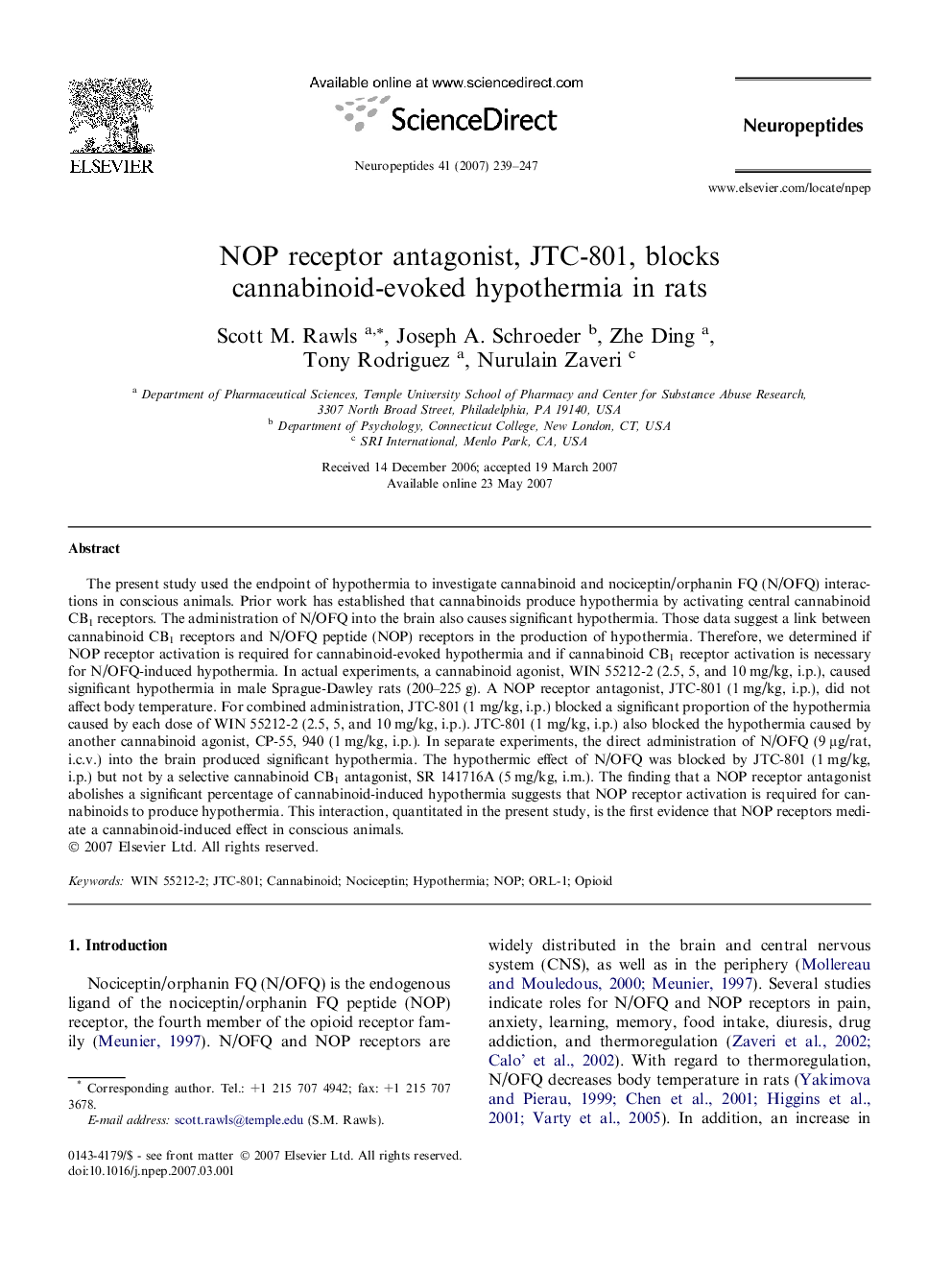| Article ID | Journal | Published Year | Pages | File Type |
|---|---|---|---|---|
| 2808482 | Neuropeptides | 2007 | 9 Pages |
The present study used the endpoint of hypothermia to investigate cannabinoid and nociceptin/orphanin FQ (N/OFQ) interactions in conscious animals. Prior work has established that cannabinoids produce hypothermia by activating central cannabinoid CB1 receptors. The administration of N/OFQ into the brain also causes significant hypothermia. Those data suggest a link between cannabinoid CB1 receptors and N/OFQ peptide (NOP) receptors in the production of hypothermia. Therefore, we determined if NOP receptor activation is required for cannabinoid-evoked hypothermia and if cannabinoid CB1 receptor activation is necessary for N/OFQ-induced hypothermia. In actual experiments, a cannabinoid agonist, WIN 55212-2 (2.5, 5, and 10 mg/kg, i.p.), caused significant hypothermia in male Sprague-Dawley rats (200–225 g). A NOP receptor antagonist, JTC-801 (1 mg/kg, i.p.), did not affect body temperature. For combined administration, JTC-801 (1 mg/kg, i.p.) blocked a significant proportion of the hypothermia caused by each dose of WIN 55212-2 (2.5, 5, and 10 mg/kg, i.p.). JTC-801 (1 mg/kg, i.p.) also blocked the hypothermia caused by another cannabinoid agonist, CP-55, 940 (1 mg/kg, i.p.). In separate experiments, the direct administration of N/OFQ (9 μg/rat, i.c.v.) into the brain produced significant hypothermia. The hypothermic effect of N/OFQ was blocked by JTC-801 (1 mg/kg, i.p.) but not by a selective cannabinoid CB1 antagonist, SR 141716A (5 mg/kg, i.m.). The finding that a NOP receptor antagonist abolishes a significant percentage of cannabinoid-induced hypothermia suggests that NOP receptor activation is required for cannabinoids to produce hypothermia. This interaction, quantitated in the present study, is the first evidence that NOP receptors mediate a cannabinoid-induced effect in conscious animals.
